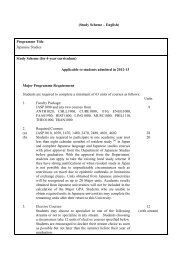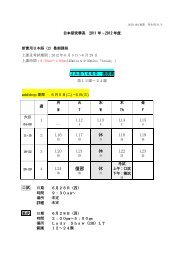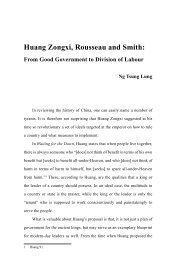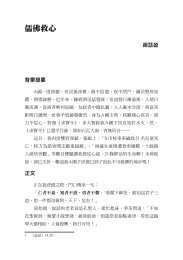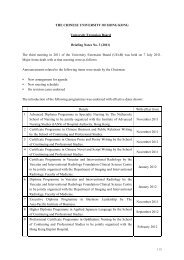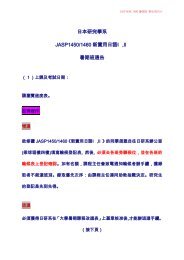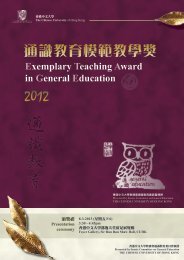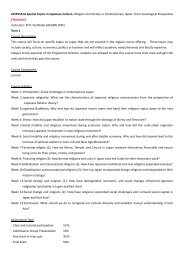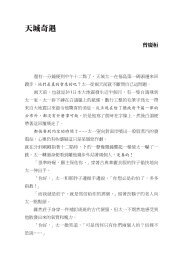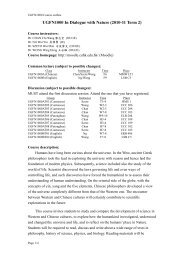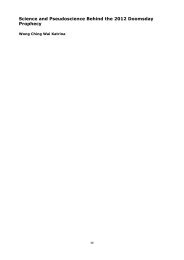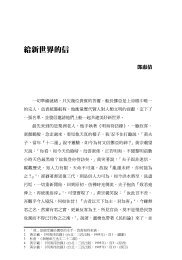ä¸è¼å ¨æ¸ - The Chinese University of Hong Kong
ä¸è¼å ¨æ¸ - The Chinese University of Hong Kong
ä¸è¼å ¨æ¸ - The Chinese University of Hong Kong
Create successful ePaper yourself
Turn your PDF publications into a flip-book with our unique Google optimized e-Paper software.
204 Teaching and Learning in General Education<br />
reasonable in the selection <strong>of</strong> criteria, focused in inquiry, and persistent in<br />
seeking results which are as precise as the subject and the circumstances <strong>of</strong><br />
inquiry permit. Thus, educating good critical thinkers means working toward<br />
this ideal. It combines developing CT skills with nurturing those dispositions<br />
which consistently yield useful insights and which are the basis <strong>of</strong> a rational<br />
and democratic society. (Facione, 1990a, p. 2)<br />
Teaching General Critical Thinking Courses<br />
By “general CT courses,” I mean courses aimed at enhancing CT ability<br />
generally, under any circumstances, not specifically within a certain subject<br />
or discipline. In this type <strong>of</strong> course CT is taught without a specific subject<br />
as a background; rather, diverse materials are used to illustrate the general<br />
principles <strong>of</strong> CT. I have been teaching this type <strong>of</strong> course for some years<br />
and would like to briefly discuss my own experiences in this section. <strong>The</strong><br />
discussion will be divided into two parts — the first on cognitive skills, the<br />
second on affective dispositions.<br />
When teaching cognitive skills, I generally cover the following four<br />
areas: A. Meaning analysis<br />
B. Logical skills<br />
C. Scientific reasoning<br />
D. Fallacy analysis<br />
<br />
I first learned about this framework as a student <strong>of</strong> Dr. Tien-ming Lee’s courses, as well as a<br />
reader <strong>of</strong> his books. But my presentation <strong>of</strong> it below is my own understanding and involves<br />
my own synthesis <strong>of</strong> his framework with other CT materials. He would not necessarily<br />
endorse the result. Apart from these four areas, I will sometimes also touch on a topic such<br />
as “cognitive biases,” which is related to fallacy analysis but is more akin to psychology<br />
than to logic.



